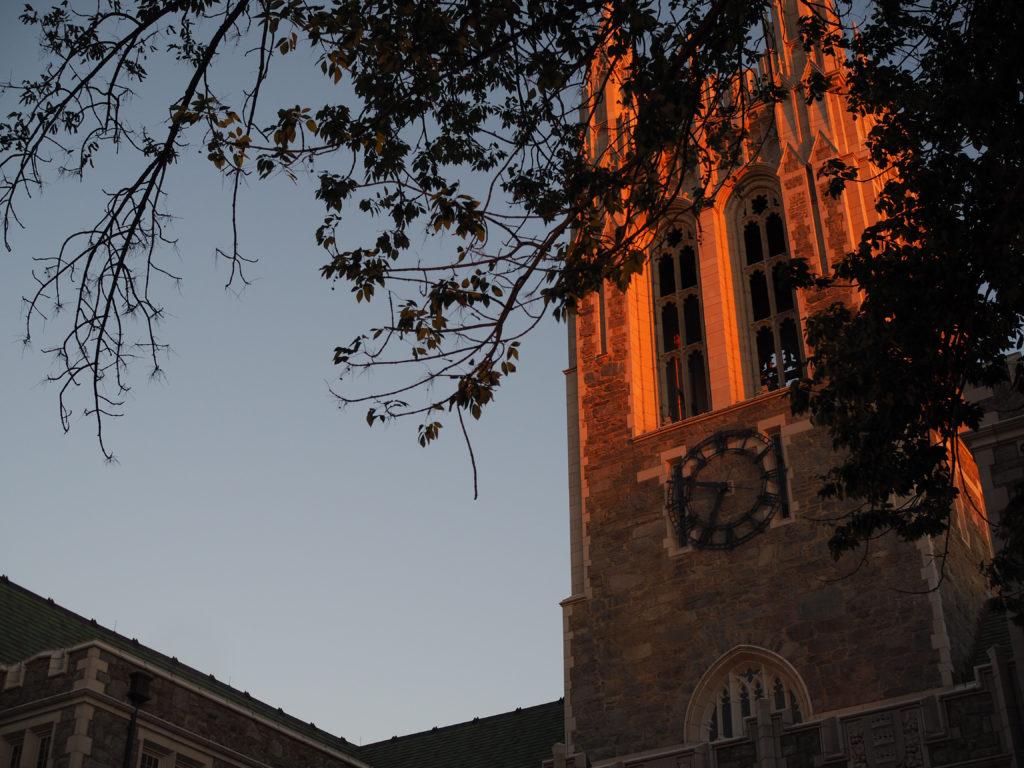Aiming to expand Boston College’s global presence, the University has launched the Global Engagement Committee, a group of 25 students, faculty, and administrators who will advise BC on achieving this goal. Following the committee’s first town hall event last Thursday, Alberto Godenzi, co-chair of the initiative, former dean of the School of Social Work, and special advisor to University President Rev. William P. Leahy, S.J., discussed the details and overall purpose of the initiative with The Heights.
One key focus within BC’s most recent strategic plan, Ever to Excel, is to increase the University’s presence and impact in the City of Boston, the United States, and around the world. As Georgetown University launched a initiative with similar goals in 2013 and Notre Dame University in 2006, Godenzi believes there is a clear opportunity to explore BC’s global engagement and take a mission-driven approach to enhance it.
“BC has been growing from a regional university to a national one,” Godenzi said. “We have been engaged internationally, but not in a strategic way.
“We can’t be everywhere, but we can make a few targeted investments given our strengths. We are in a point in our history in which it makes sense to bring this together in an integrated fashion so that our impact can extend and our collaborations can grow.”
In the committee’s first meeting in October, Leahy gave the group a charge: he told them to take stock of what’s going on at BC, to understand where the University is strategically, and to look at the internalization and global presence of its peer universities. Godenzi and the committee then began to evaluate 22 universities, as well as meet with approximately 200 members of the BC community to gather insight into what the University should do to enhance its presence on the global stage.
Although Godenzi and the committee still have more research to perform, they have gathered insight into a number of initiatives that BC can take on—he hopes the committee will lay out an official plan for the University in October. Some of his ideas are that BC could leverage its study abroad program in Ireland to become a “gateway to Europe,” foster collaborations in regions of the world that it has little presence, and give students who decide not to study abroad a more “international experience” here in Chestnut Hill.
“I would only see this as a successful project if faculty, students, staff, and alumni were engaged wherever we choose to be engaged,” Godenzi said.
In Thursday’s town hall meeting, Godenzi and the committee discussed four areas that BC could improve: student mobility, faculty global engagement, internationalizing learning, and establishing global partnerships.
One finding that the committee has made thus far is that there is a lack of awareness across BC’s schools of the projects, research, and initiatives occurring. Godenzi suggested that BC could address this discrepancy by creating a repository database about what’s happening in certain regions of the world.
“There are so many things happening that faculty and staff are doing, but the striking thing is that people don’t know about them,” Godenzi said.
He also pointed out that BC has reached a new high in the enrollment of international students, but explained that the University could do better—its combined undergraduate and graduate international student population rose from from 1,606 last year to a record 1,751 this year, as The Heights reported last month.
On the undergraduate level, this rate only represents around six percent of the student body, whereas other institutions currently have 15 to 20 percent enrollment. He mentioned that international student applications to universities in the United States decreased last year, which could have a potentially negative ripple effect on BC.
Additionally, as the majority of BC’s international student population comes from China, Godenzi believes the University should diversify its international student body.
Godenzi also suggested that BC could consider offering financial aid to international students to appeal to a wider variety of students, who otherwise would not be able to afford attending BC.
He and the committee hope to engage the entire BC community in this effort to internationalize the school. They see a prime opportunity to gain input from the community on what projects and initiatives the University should undertake to become a global leader in higher education.
“This internationalization is a means, not an end, to make the University better,” Godenzi said.
Featured Image by Celine Lim / Heights Staff
Correction, Feb. 27, 3:32 p.m.: Georgetown University launched an initiative to expand its global presence in 2013, and the University of Notre Dame in 2006.



















